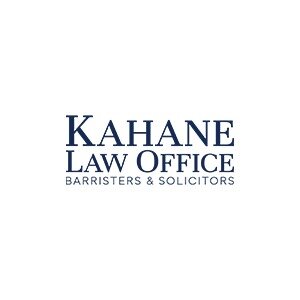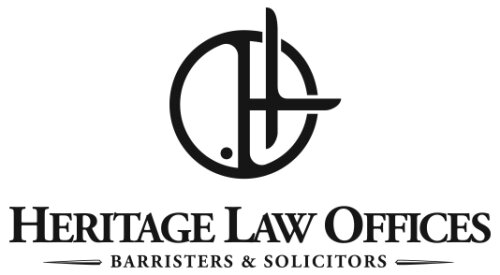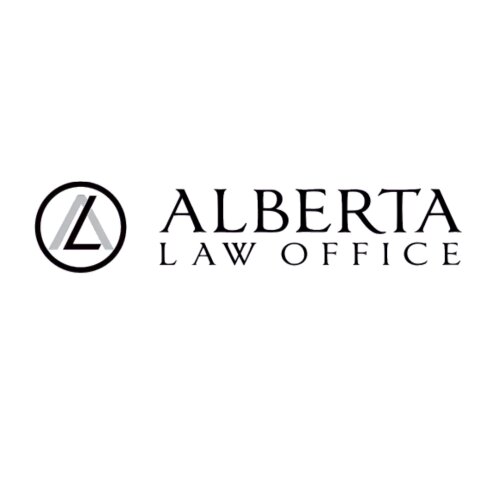Best Child Abuse Lawyers in Edmonton
Share your needs with us, get contacted by law firms.
Free. Takes 2 min.
Free Guide to Hiring a Family Lawyer
List of the best lawyers in Edmonton, Canada
About Child Abuse Law in Edmonton, Canada
Child abuse is a serious crime and is taken very seriously by law enforcement authorities in Edmonton, and across Canada. Child abuse can take several forms, including physical harm, neglect, sexual abuse, emotional abuse, and exposure to family violence. The Child, Youth and Family Enhancement Act provides legal protection to children from neglect and abuse in Alberta, including Edmonton. Any suspected case of child abuse must be reported to the authorities.
Why You May Need a Lawyer
You may need a lawyer if you are dealing with a child abuse case, either as a person directly involved or as a concerned third party. You might need legal help to understand your rights and responsibilities, to navigate the court system, to prepare for and defend against any allegations, or even to mediate in scenarios involving custody disputes and safety interventions. Lawyers with expertise in child abuse can provide you with the necessary advice and representation.
Local Laws Overview
In Edmonton, children's rights and safety are protected under the Child, Youth and Family Enhancement Act. The Act requires that any person who has reasonable and probable grounds to believe that a child is in need of intervention must promptly report the matter to a director, a police officer, or a Child and Youth Advocate office. Depending on the situation, the law can impose various levels of intervention, ranging from supervisory orders to temporary guardianship to permanent guardianship.
Frequently Asked Questions
What constitutes child abuse?
Child abuse includes any act, or lack of action, that endangers a child's physical or emotional health or development. This can include physical, sexual, and emotional abuse, as well as neglect.
What happens when you report child abuse?
When a report of child abuse is made, an investigation will be conducted. If it is found that the child is being abused or neglected, measures will be taken to ensure the child's safety.
What are the penalties for child abuse?
Under Canada's Criminal Code, penalties for child abuse can include imprisonment for terms ranging from two years for neglect to 14 years for physical or sexual abuse.
Will the child be taken away from the family?
If a child is in immediate danger, they may be temporarily removed from the home while the case is investigated. This decision is made with the child's best interests in mind.
Can I report child abuse anonymously?
While the identity of those reporting child abuse is protected under the Child, Youth and Family Enhancement Act, completely anonymous reporting may not be permitted as the reporter may need to testify if the case goes to court.
Additional Resources
Contact the Alberta Ministry of Children’s Services, the Edmonton Police Service, or local advocacy groups that specialize in child welfare for additional resources and assistance in understanding child abuse laws.
Next Steps
If you or someone you know is involved in a child abuse case or situation, it's important that you seek legal help immediately. Contact a child abuse lawyer in Edmonton who can guide and assist you in the legal process. Remember, the best interests of the child are always the highest priority.
Lawzana helps you find the best lawyers and law firms in Edmonton through a curated and pre-screened list of qualified legal professionals. Our platform offers rankings and detailed profiles of attorneys and law firms, allowing you to compare based on practice areas, including Child Abuse, experience, and client feedback.
Each profile includes a description of the firm's areas of practice, client reviews, team members and partners, year of establishment, spoken languages, office locations, contact information, social media presence, and any published articles or resources. Most firms on our platform speak English and are experienced in both local and international legal matters.
Get a quote from top-rated law firms in Edmonton, Canada — quickly, securely, and without unnecessary hassle.
Disclaimer:
The information provided on this page is for general informational purposes only and does not constitute legal advice. While we strive to ensure the accuracy and relevance of the content, legal information may change over time, and interpretations of the law can vary. You should always consult with a qualified legal professional for advice specific to your situation.
We disclaim all liability for actions taken or not taken based on the content of this page. If you believe any information is incorrect or outdated, please contact us, and we will review and update it where appropriate.











